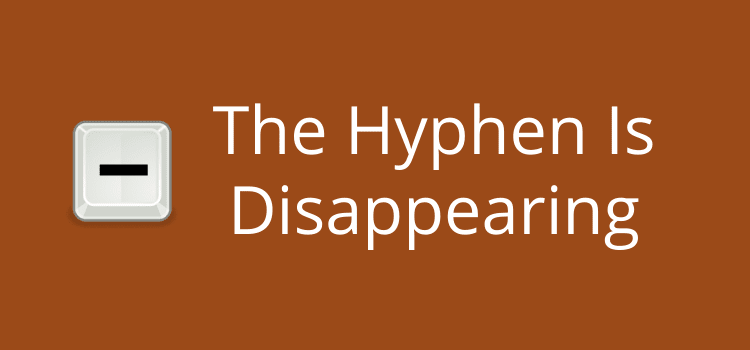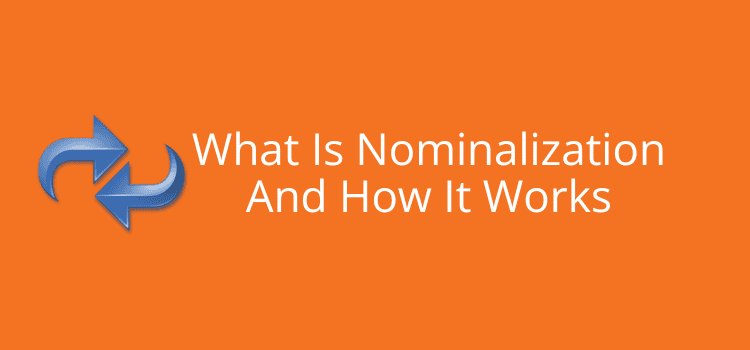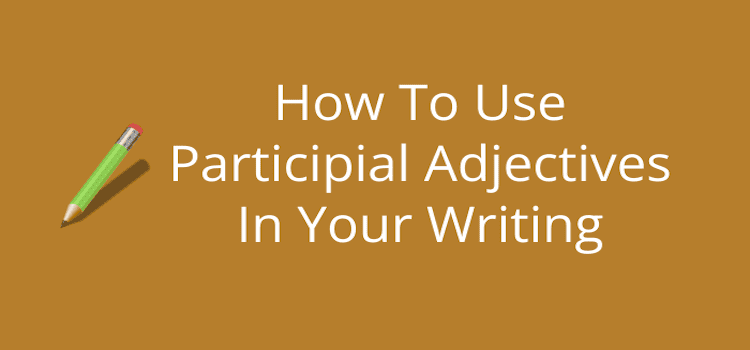
There’s no doubt that the hyphen is disappearing slowly from written English.
It’s far more common today to use email rather than e-mail. Perhaps this one word, along with technology, started the hyphen’s demise.
However, it’s not all over yet for the humble little dash.
It still has many uses, but most of all, it helps avoid confusion and misunderstandings.
Why is hyphen use fading?
When it comes to punctuation, the correct use of the hyphen is one of the most confusing points.
For many people, it’s easier to ignore than learn how to use it correctly.
Another factor is that we all use keyboards, including phones, and it’s not always easy to find the hyphen key.
You could blame or credit technology, but we are certainly using the hyphen less and less.
Back in 2007, the Oxford English Dictionary (OED) announced that it had removed the hyphen from about 16,000 compound words.
The reasoning was that many open compound nouns (two words) are now closed nouns (one word.)
The OED gives the example of hand writing and hand-writing becoming handwriting.
But it also said:
There’s an increasing tendency to choose an open or closed form over a hyphenated form. Fig leaf, hobby horse, and water bed stay open, while chickpea, crybaby, and logjam stay closed.
It’s easy to understand the logic. If there is no confusion, the hyphen becomes unnecessary.
When do we need to use a hyphen?
One of the prime tasks of the hyphen is to avoid misunderstandings.
In particular, with prefixes and compound adjectives.
When we forget to use or overlook a hyphen with certain words, the meaning can be extremely confusing for a reader.
While the hyphen might be disappearing in other uses, there are still certain situations where it is essential.
Hyphens and prefixes
For some prefixes, the hyphen can make a big difference in meaning.
Here are some examples.
Re-cover and recover – To replace a cover or to overcome an illness.
Re-creation and recreation – To create again or an enjoyable activity.
Co-op and coop – A cooperative society or a cage for an animal.
Re-sent and resent – To send again or to begrudge.
The hyphen is also necessary when a prefix creates a doubling repetition of vowels.
For example, re-engineered, pre-existing, anti-inflammatory, and de-escalate.
Separating two repeating vowels is much easier for readers.
Hyphens with compound adjectives
With compound adjectives, hyphen use is all about clarity.
The local council decided on no parking rule changes at its last meeting.
The local council decided on no-parking rule changes at its last meeting.
It’s easy to spot the difference in meaning between the two sentences.
In the first sentence, the council decided not to change any parking rules.
But in the second sentence, it’s clear that it changed the rules in relation to no-parking infringements.
We are looking for a small business investor for our startup idea.
We are looking for a small-business investor for our startup idea.
Without a hyphen, it seems that the startup is looking for someone who is extremely short.
Three hundred odd people attended the protest march.
Three hundred-odd people attended the protest march.
The first example reads that 300 very strange people indeed attended.
But with a hyphen, it makes it clear that odd refers to an estimate of the number of people.
Hyphenated names
When I was very young, my grandparents believed that people with hyphenated surnames were upper-class.
Or, in their vocabulary of the time, these people were posh.
In a sense, it was true because hyphenated or double-barreled names originated in 15th-century nobility.
In British tradition, a double surname is heritable and connected to the inheritance of a family estate. Wikipedia.
Today, however, it is common to use two surnames with or without a hyphen.
But depending on where you live, there can be legal aspects associated with marriage and hyphenated last names.
Where I live, people can choose how they order their last names when they marry.
But if they choose a hyphen, as in Weiss-Jones, using the two names without a hyphen is not legal for any official documentation.
When can you forget the hyphen?
Many compound nouns are certainly losing hyphens to form open and closed nouns that are easier to read.
There is no need now to use ice-cream, fig-leaf, e-mail, or on-line. It’s ice cream, fig leaf, email, and online.
With compound adjectives, if the first part of the compound is an LY adverb, there is never a hyphen.
He bought a strikingly bright red coupé.
A beautifully decorated ballroom awaited the bride and groom.
She’s a tremendously successful author.
For prefixes, if it forms a new word, there is less need now to use a hyphen.
For example, unhappy, ultraviolet, predisposed, devalue, extracurricular, biweekly, and bimonthly.
But words that use the prefixes self, and ex, hyphens usually stay. Examples include self-assurance, self-confident, self-defense, ex-husband, or ex-president.
One last use that is disappearing is with using hyphens with fully justified text.
This is especially true for ebooks, but it is also true for printed books, where left justification is becoming more common.
The humble hyphen is not finished yet
We still need to use the hyphen to join words that create a combined meaning or that are linked grammatically.
But if the meaning is totally clear without a hyphen, it is becoming increasingly acceptable to drop the hyphen.
I would argue that it’s correct to refer to a well-known actor. Yet, when used after the noun, an actor is well known.
But is a well known actor any less clear?
English is changing all the time.
You can use the least worst to talk about bad choices. And who cares about a split infinitive today?
So it’s no surprise that this difficult punctuation point is being avoided where possible.
We can blame technology, keyboards, and the word email. But the hyphen started disappearing from everyday use long before that.
For writers, it’s still a matter of style and correctness. If you are in any doubt, check your dictionary or grammar reference guide.
But make sure you have an up-to-date version because dictionaries change many entries every year.
Related reading: When Do You Need To Spell Out Numbers In Full In Your Writing?



